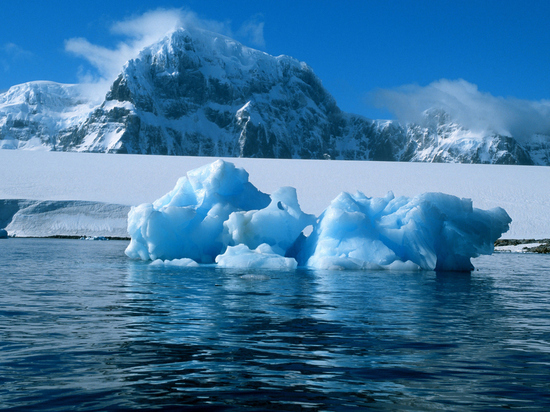‘Beginning of the end’: scientists are alarmed by the melting of Antarctic ice
[ad_1]

Antarctic sea ice has reached a record low for the second time in two years, and some scientists are alarmed that the sharp decline is a signal that the climate crisis may now be affecting this vast, complex and isolated region more clearly. Experts wonder if this is not the “beginning of the end.”
According to the National Snow and Ice Data Center (NSIDC), on February 13, the extent of sea ice fringing Antarctica shrank to just 1.91 million square kilometers, lower than the previous record of 1.92 million square kilometers set on February 25 last year.
As CNN notes, sea ice may still be shrinking; the lowest level of southern summer can be reached in no more than a week.
The past two years have been the only time sea ice has dropped below 2 million square kilometers since satellites began monitoring it in 1978.
It’s not just a near-record low, glaciologist Ted Scambos of the University of Colorado Boulder told CNN. “This is a very steep downtrend.”
Unlike the Arctic, where the rate of sea ice loss has followed a fairly consistent downward trajectory as climate change has accelerated, Antarctic sea ice has fluctuated up and down, making it difficult to understand how the continent and its surrounding oceans are responding to global warming.
While the Arctic is an ocean surrounded by continents, Antarctica is a continent surrounded by an ocean – meaning its sea ice can grow outward without being held back by land. Antarctic ice is generally thinner than Arctic ice, with large highs in winter and sharper lows in summer.
Climate models predicted a reduction in sea ice in Antarctica similar to the Arctic, but until recently, the region has behaved very differently than those models predicted. In 2014, it reached a record high winter sea ice extent when it reached 7.76 million square miles, which seemed to support the idea that Antarctica could be relatively insulated from global warming.
But in 2016, something changed. Scientists have begun to observe a sharp downward trend, according to CNN.
At first, some chalked it up to the normal variability of this highly complex continent, with its diverse, interconnected climate systems. But after two consecutive records of low sea ice levels, scientists are beginning to worry.
“The question is, has climate change affected Antarctica? Is this the beginning of the end? Will the sea ice disappear forever in the coming years in the summer?” Christian Haas, head of sea ice physics research at the Alfred Wegener Institute in Germany, tells CNN.
Several factors may explain why there is so little sea ice, including winds, ocean currents, and ocean heat. The air temperature in some areas of Antarctica was higher than usual, about 1.5 degrees Celsius above the long-term average. Another important factor is the belt of westerly winds that surround Antarctica, known as the South Annular Mode. These winds, which could increase sea ice melt, were stronger than usual and exacerbated weather patterns that are pumping warm air into the region, according to NSIDC.
The strength of the winds was partly due to the increased pollution of the planet as a result of the heating, as well as a hole in the ozone layer over the continent.
There are also speculations that sea ice may be melting due to heat being held directly below the ocean’s surface, Scambos said.
“Essentially, you get heat transferred to the top layer [воды] around Antarctica,” he said. If this theory is correct and is related to the general warming of the oceans, “then it has big implications for the stability of the Antarctic ice sheet.”
The disappearance of sea ice could have cascading effects in Antarctica and beyond. While this does not directly affect sea levels since it is already floating in the ocean, the loss of the sea ice edge around Antarctica leaves coastal ice sheets and glaciers open to waves and warm ocean waters, making them much more vulnerable to melting and breaking down.
Antarctica’s altered landscape could have a significant impact on its wildlife, from the micro-organisms and algae that maintain the food chain – food for krill, which in turn feeds many of the region’s whales – to penguins and seals that rely on sea ice for food and recreation.
Carlos Moffat, an oceanographer at the University of Delaware who has just returned from a research trip to the Antarctic Peninsula, told CNN that the low sea ice levels and very warm ocean temperatures they have found are starkly different from what we have seen over the past few decades. Moffat, who visits the region every summer as part of Palmer’s long-term environmental study, said: “This year’s conditions are in the midst of long-term changes in this region of Antarctica.”
Last year, scientists said that West Antarctica’s huge Thwaites Glacier, also known as the Doomsday Glacier, is holding on like pins and needles as the planet warms, and a rapid retreat is possible in the next few years. Scientists have calculated that global sea level rise could increase by about 10 feet if Thwaites collapses completely, devastating coastal communities around the world.
[ad_2]
Source link








